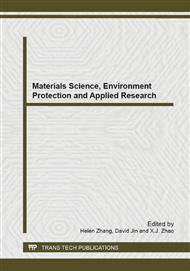p.531
p.535
p.539
p.543
p.547
p.551
p.555
p.559
p.563
Optimization Technology of PID Parameter in Control System Based on Improved Particle Swarm Optimization Algorithms
Abstract:
Particle swarm algorithm has been proven to be very good solving many global optimization problems. Firstly we improved particle swarm optimization algorithm, the improved PSO algorithm for continuous optimization problem, in solving the nonlinear combinatorial optimization problems and mixed integer nonlinear optimization problems is very effective. This design adopts the improved particle swarm algorithm to optimize the PID parameters of the control system, and the effectiveness of the improved algorithm is proved by experiment.
Info:
Periodical:
Pages:
547-550
DOI:
Citation:
Online since:
March 2014
Authors:
Price:
Сopyright:
© 2014 Trans Tech Publications Ltd. All Rights Reserved
Share:
Citation:


